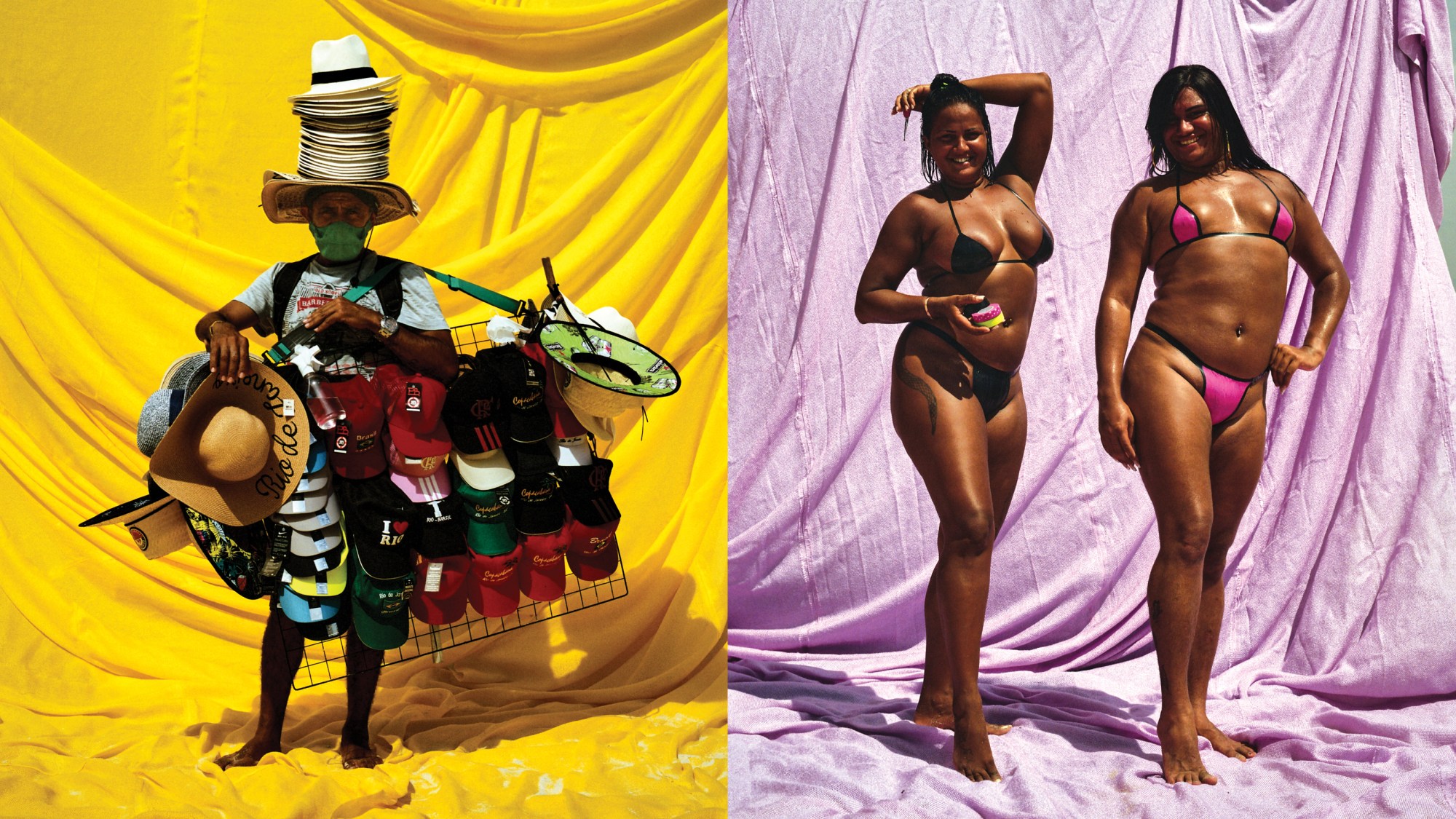As a child growing up in Azerbaijan, Fuad spent hours in his grandma’s tiny living room, which doubled as their bedroom, watching telenovelas while his mum was working. She never missed an episode of the Brazilian soaps: her favourites full of family dysfunction, illicit affairs and revenge. Fuad didn’t aspire to any of that, but he did start to dream of living in Brazil. “When you grow up you forget,” he says. “Then the pandemic happened, and my grandma passed away, and I went back to this inner thing that I’ve wanted since forever.”
The photogapher moved to Rio de Janeiro from Paris (where he’s lived since he was 19) in December 2020 and stayed for three months, renting an apartment on Ipanema Beach: a white sandy strip framed by Pedra da Gávea mountain. He was instantly hit with the craziness of the city in the middle of the jungle, the colours, heat and seemingly endless sky. Like a true carioca (Rio local) — the kind who wishes tenha uma boa praia or ‘have a good beach’ rather than ‘have a good day’ — he visited the seaside daily.
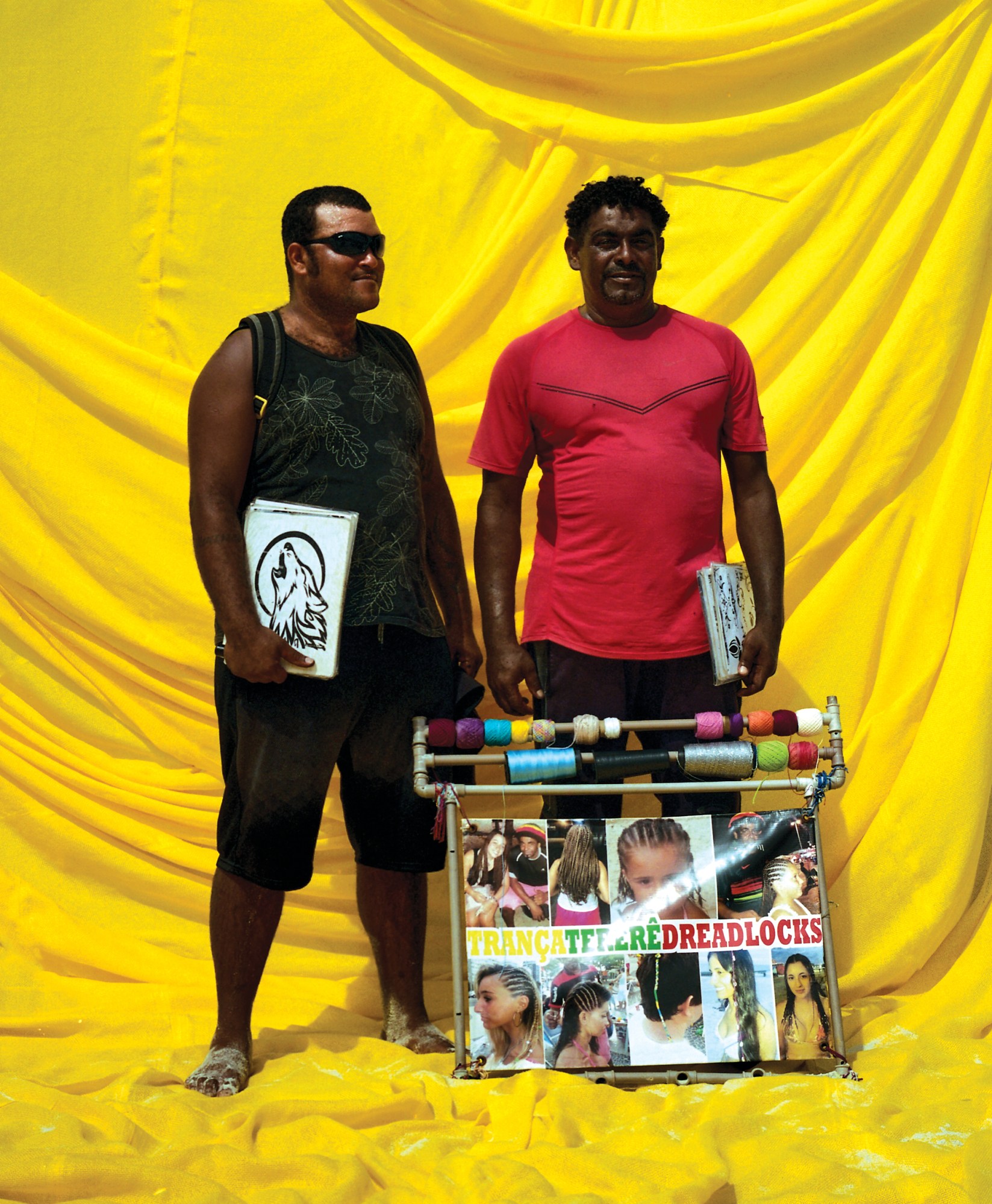
He got to know the vendors along Leme Beach, Copacabana and Ipanema, who touted caipirinhas and sweet, iced yerba mate — an herbal tea transported in large metal cylinders to keep it cold — stashes of Biscoito Globo, candyfloss, plastic Christ the Redeemers, hats, bikinis, sunshades and beach chairs. At Piscinao de Ramos, an artificial saltwater lake where thousands of people from the 15 surrounding favelas spend their summer, he found women selling biquini de fita: tape that’s stuck on the body in the shape of a bikini for perfect tan lines. “I wanted to highlight them,” he says.
Dany was a warm and welcoming vendor who showed Fuad exactly how to stick on a bikini. She features on the front cover of his new book Beleza, wearing one she’s made out of pink and black tape. It captures the vibrant beach sellers of Brazil: a young boy in his football kit carrying tropical cocktails, another laughing in his tiny trunks; a woman has her back to the camera with her neon thong contrasted by her dark skin, while others have gazes hardened by the work they do.
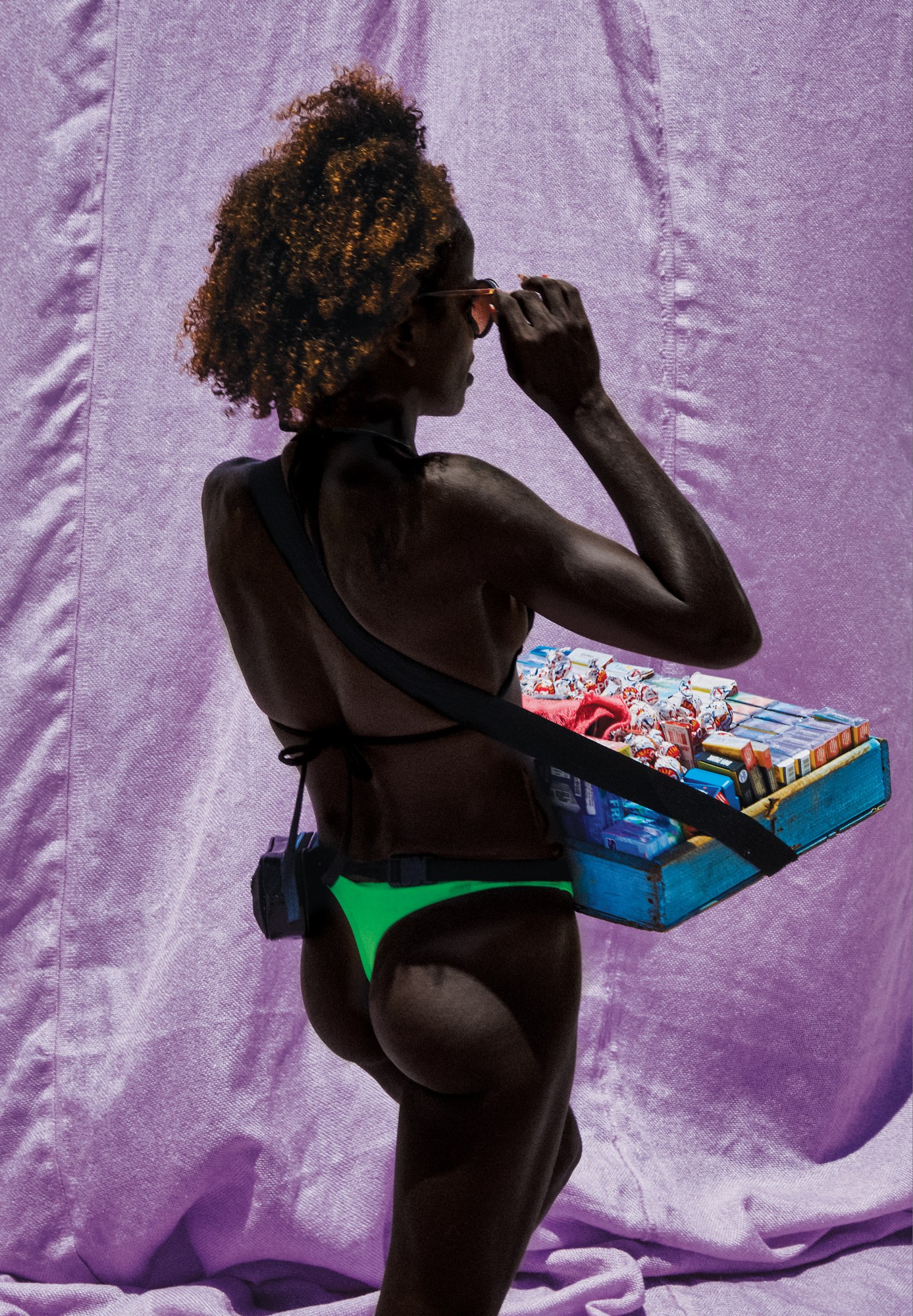

There are two portraits in particular, Fuad says, that show something “so profound” and changes the feel of a book that starts off “sunny, fun and smiling.” At his book launch at Dover Street Little Market in Paris, he found people captured by the images: a man in a black bucket hat stares deep into the camera, his eyes bloodshot from the sun and his neck strong from carrying products up and down the beach. Another looks suspiciously into Fuad’s lens. Many of the sellers pictured come from the overcrowded favelas, where gang violence, gunfights and police incursions have been rife since the drug conflict began to intensify in Rio in the 80s. Some of them choose instead to sleep on the beach.
“I like to have an exchange with the personalities of people before taking the picture,” Fuad says, noting that his friend helped to translate since he doesn’t speak much Portuguese. “I don’t like stealing shots.” From quiet conversations to cheeky exchanges, the photographer found ways to capture each character distinctively. And the cariocas loved the project, often queuing up and shouting for their friends to get involved. Fuad celebrates the extraordinary body confidence of the women in their taped bikinis, zooming in on the heavy makeup, gold jewellery and tattoos that are proudly flaunted. Beleza — a word used to mean ‘hey, how are you?’ or ‘All good?’, but that also means beautiful — shapes up to be a joyful tribute to the people energising Rio’s beaches.
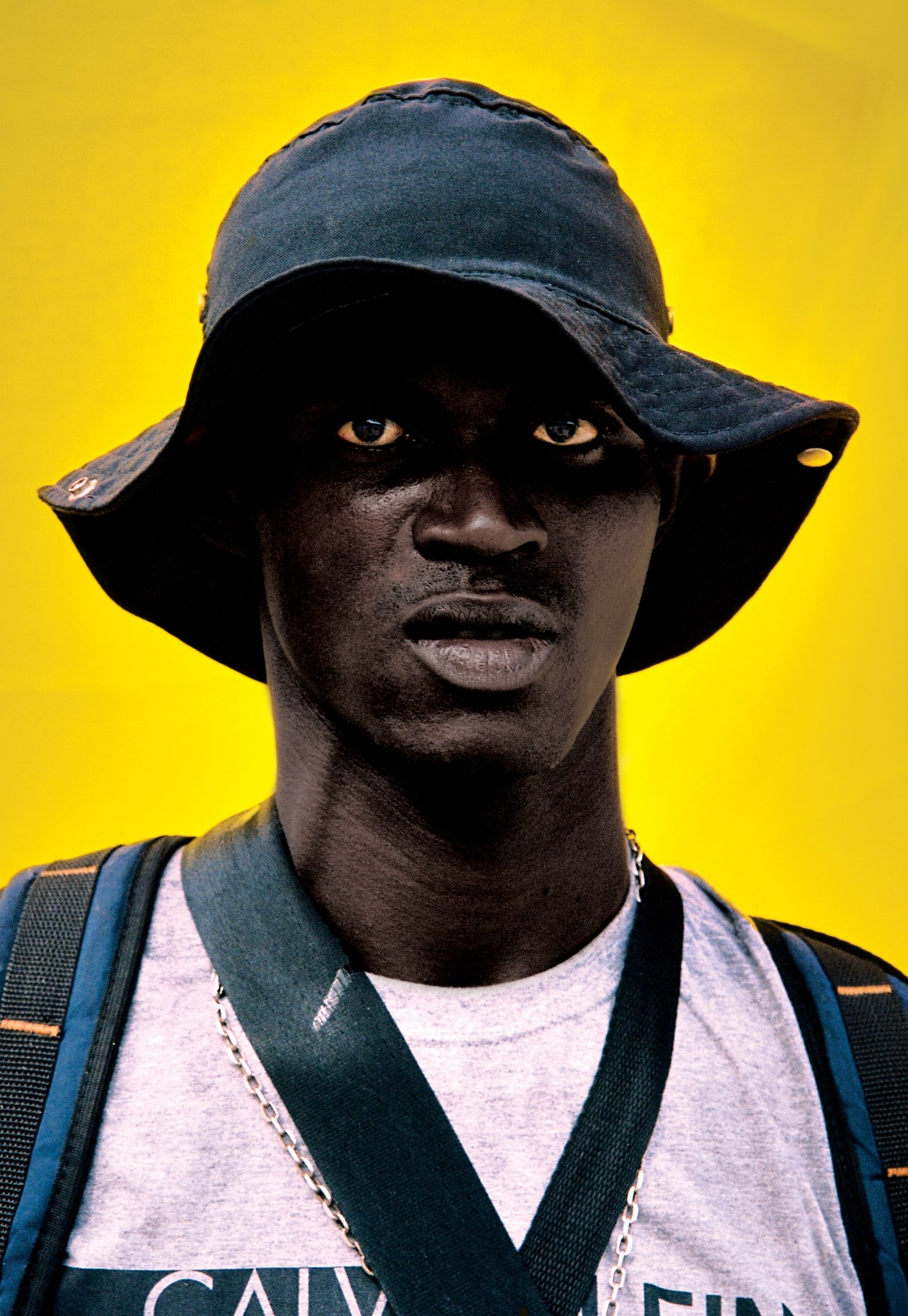
Each beach along the city’s 40km-long coastline is divided by postos and has its own personality too: Piscinao de Ramos is gritty, crowded, noisy and full of residents drunk on cachaç; it’s served as the backdrop to one of Anitta’s music videos. Ipanema is sporty and romantic with its epic sunsets; Leme Beach, is a rocky outpost crowned by the colonial Duque de Caxias fort; and Copacabana is home to the rich and famous. There’s an LGBTQ+ strip, places for the sporty kids to play football, volleyball or frescobal, a type of tennis played with wooden bats, and spots to relax, pose and hang out with friends. To demonstrate these differences in his images, Fuad hung coloured fabrics as a haphazard backdrop to symbolise each beach.
Unlike his photography work in Paris, which is darker and more serious with a vintage feel that comes from carefully chosen light and locations — Beleza is bright and burning. The photographs, taken in the afternoon in 40 degree heat, reflect that. “I wanted to bring something real,” he says. “The pictures are very aesthetic, but light-wise, I wanted to have something harsh like this and raw.” He adds, “I just wanted to bring the same vibe that I felt there in Rio, where all the colours are so bright, the sky is very saturated. In Europe, the sun is a little bit on the side, but there, it’s above your head.”
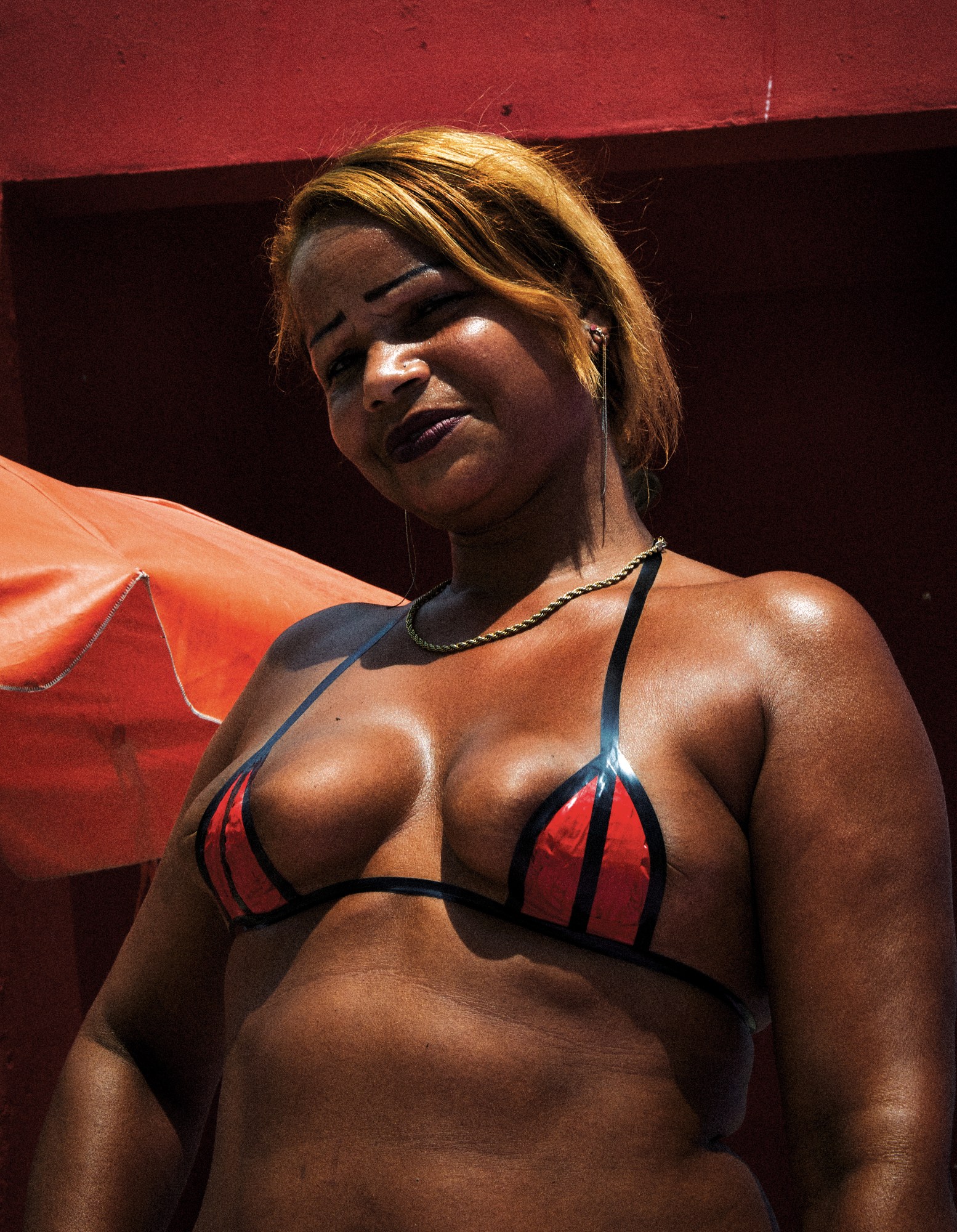
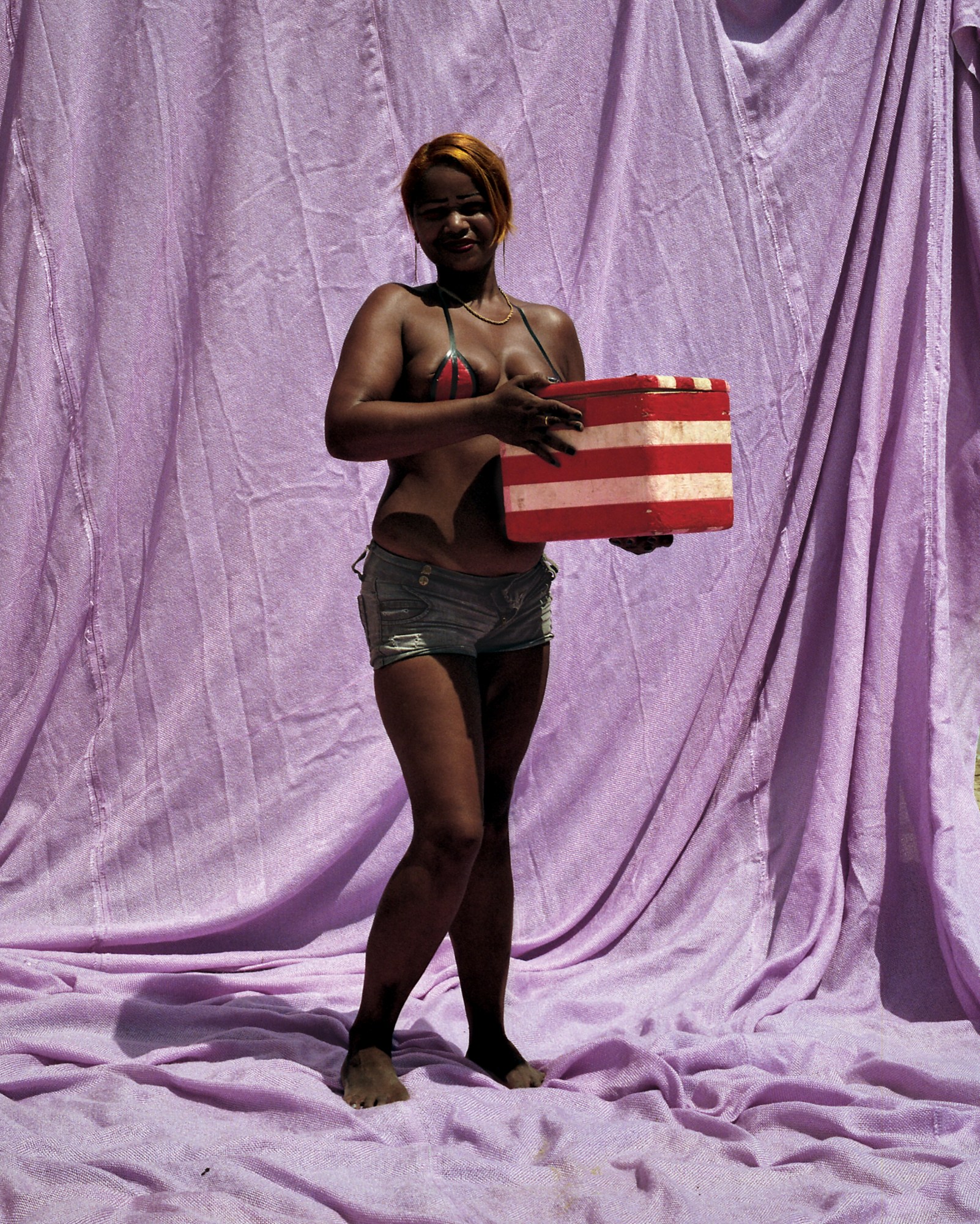

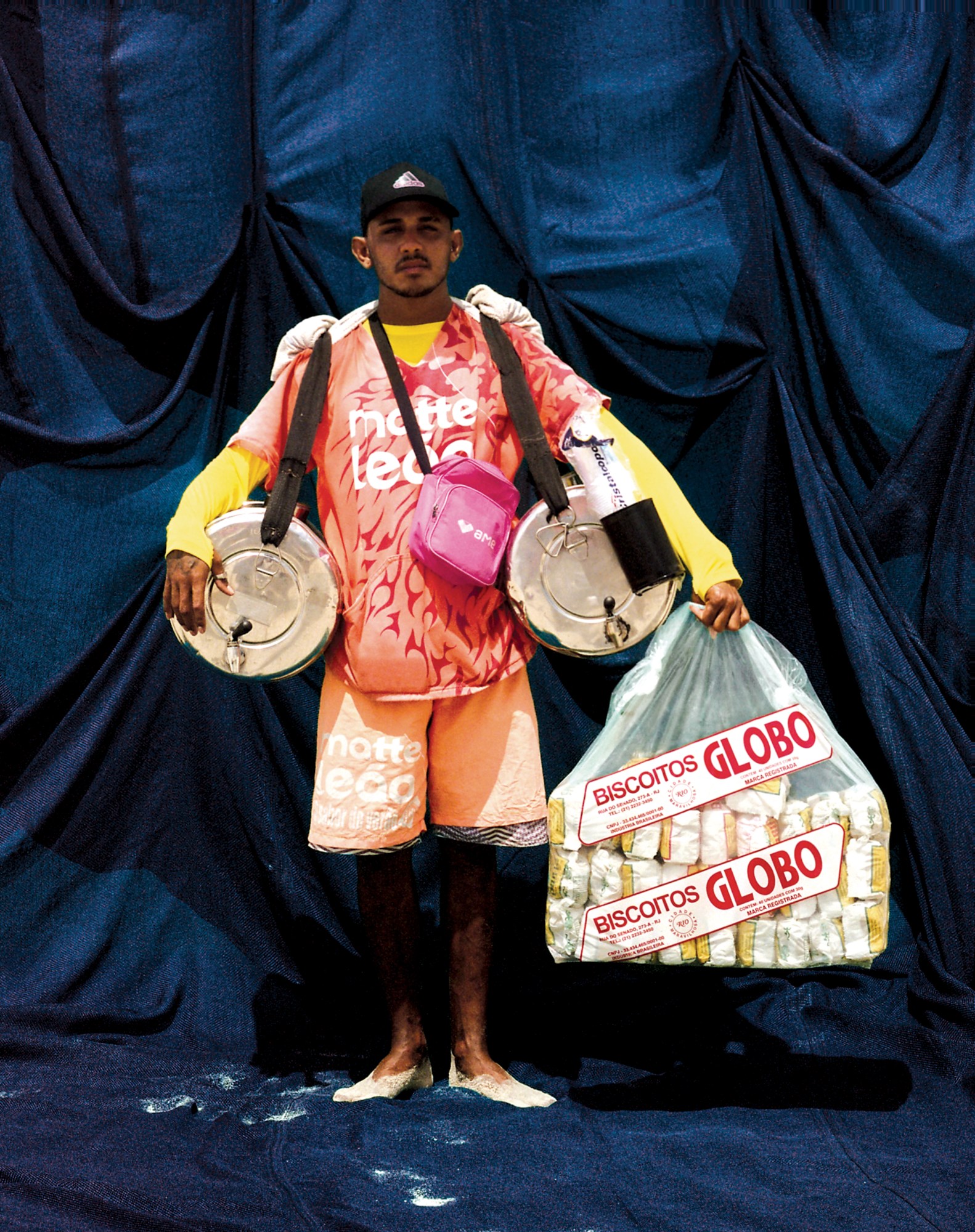
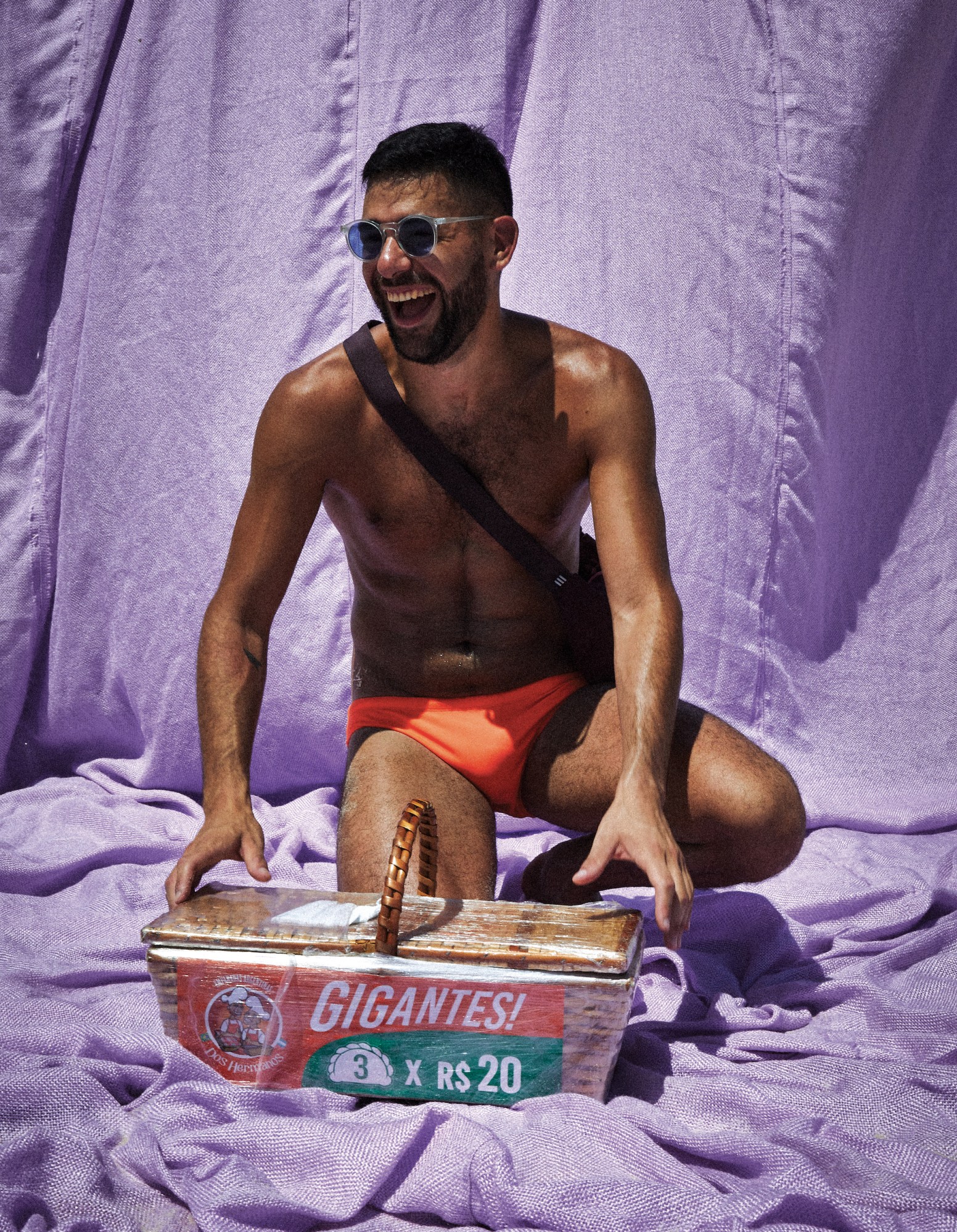
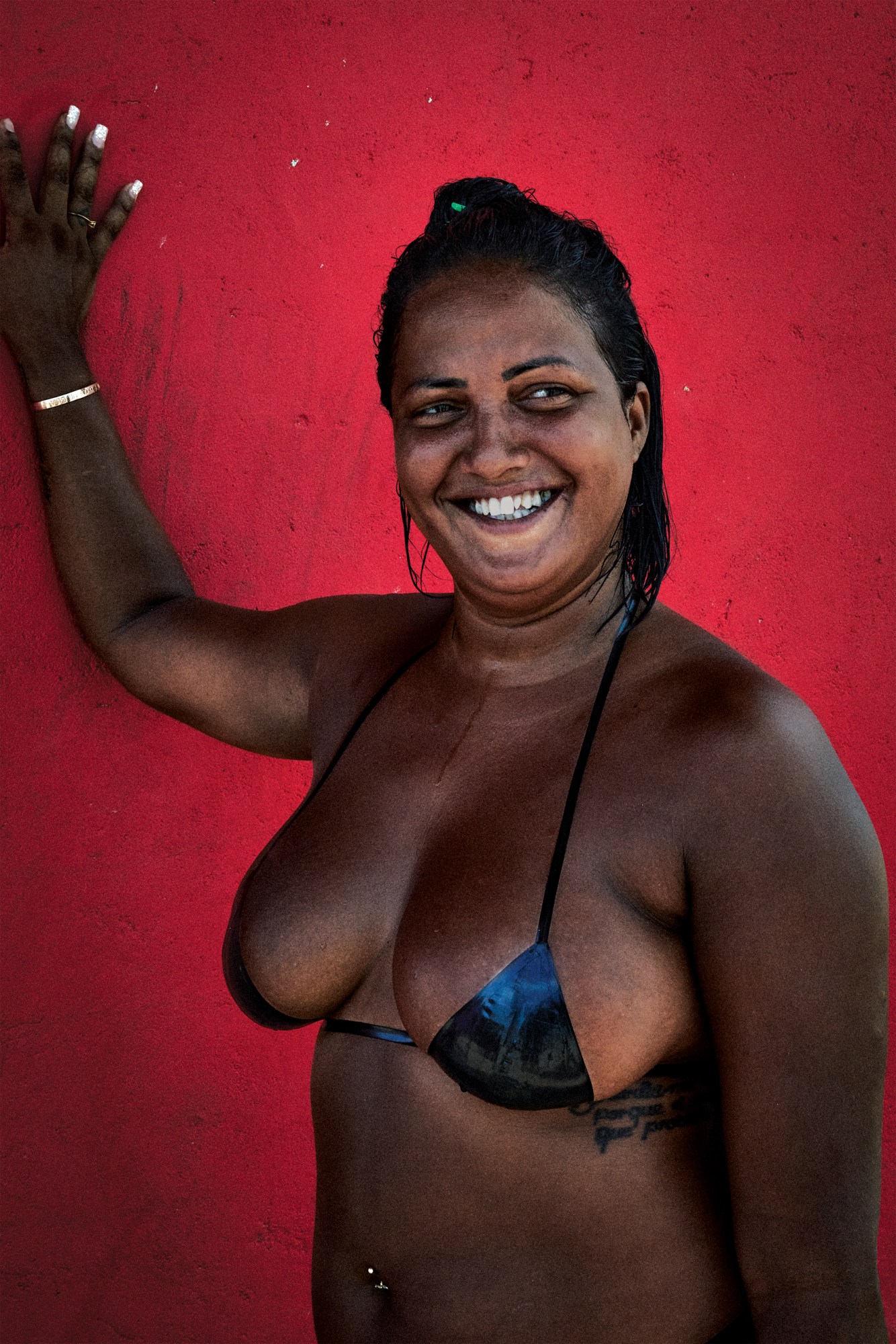
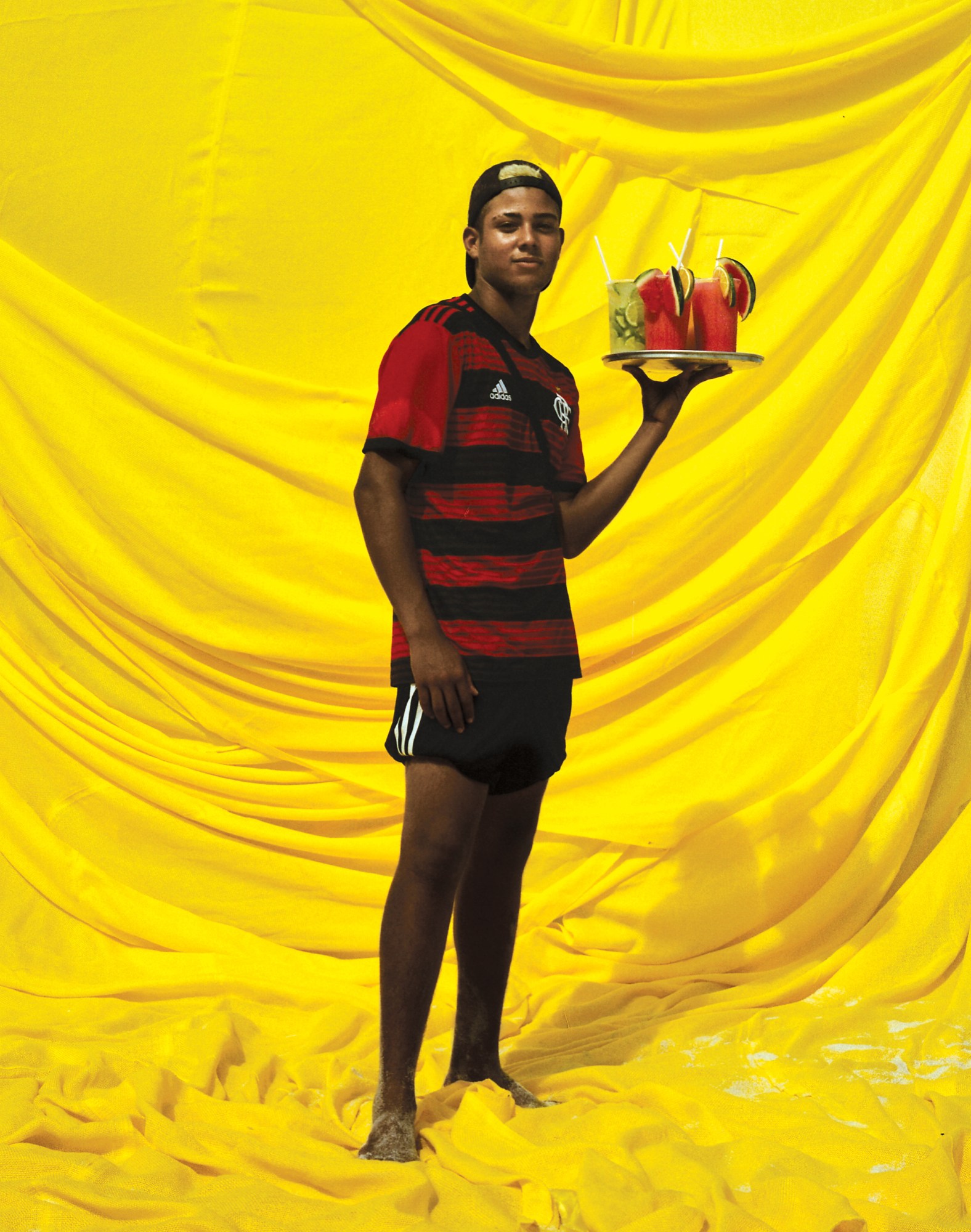
Credits
Photography Fuad
